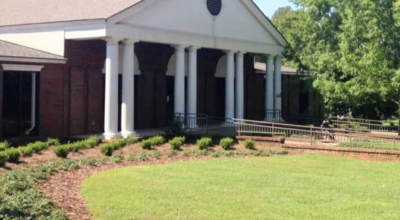County, E-911 discuss budget
Published 12:13 pm Thursday, September 22, 2011
The Crenshaw County Commission met with members of the E-911 board at a budget hearing Tuesday night, and though nothing was officially decided, the two parties are closer to signing a contract.
Under state law, E-911 services are required to have a contract to handle non-emergency dispatching for an agency.
The law also says that E-911 can’t use funds from telephone fees to dispatch non-emergency calls — those funds can only be used for emergency calls.
“Non-emergency” calls are classified as routine radio traffic, such as tag checks or an officer going off-duty. Any call received by dialing 911 is classified as “emergency.“
Because of the contract requirement, the E-911 board presented the county commission with an amount of $70,520 per year, which can be negotiated.
From July 2010 to June 2011, the E-911 dispatched 4,168 non-emergency calls for the Sheriff’s Office and 1,370 for the Alabama State Troopers.
When broken down by percentages, the Sheriff’s Office accounted for 49.68 percent of the non-emergency call volume, while the State Troopers were 16.33 percent.
Commissioner Merrill Sport pointed out that the proposed amount equates to $12.73 per call.
However, E-911 director Scott Stricklin said that the $70,520 was based on the salary number of all the dispatchers and the county’s percentage of the non-emergency call volume.
One problem is that that figure includes the Alabama State Troopers with the Sheriff’s Office. The Troopers are a state agency, and several commissioners said they believed the state should pay for their dispatching, not the county.
Taking the Troopers out of the proposal drops the amount to $53,083.
“There might be a middle ground for a contract,” said County attorney Levi Nichols.
E-911 rents the EMA building from the commission as well as splits utilities.
“I don’t think you have to say, ‘We’re going to have this much for a call,’” Nichols said.
“We need to make this work for everyone,” agreed commissioner Charlie Sankey.
While no discussions were made about a final amount, both sides agreed that a contract needs to be signed “soon.”
The commission also discussed its support of E-911, which the commission has included in its budget for years and would include a potential contract.
“If individual entities handle their own dispatching, we can cut payroll down,” said Stricklin. “To continue like we are, payroll would have to stay the same.”
Stricklin went on to say that he believes the emergency portion of the dispatching can be handled by the telephone fees.
“I think we’ve got to approve the budget at $0, and then have you come back after you’ve gotten some information,” Sankey said. “You’ve got to find out who will be involved and see what you have to function with. Then you’ll have to say what your shortfall is.“
There will be an E-911 hearing at 5 p.m. on Monday, Sept. 26, and the regular meeting will be at 6 p.m.





